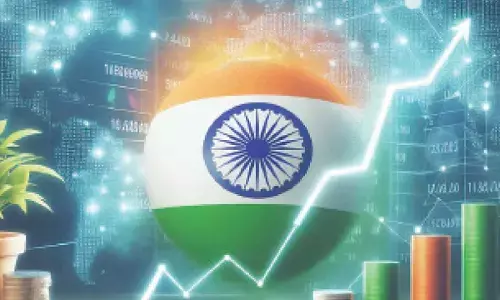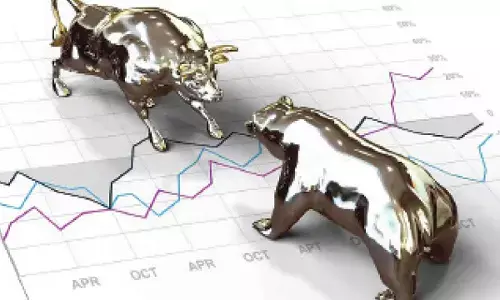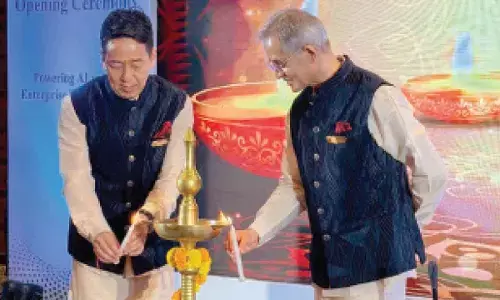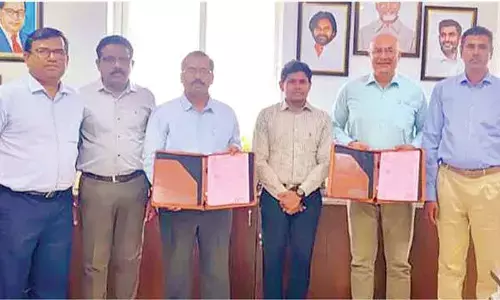Continuing despair for the farmers
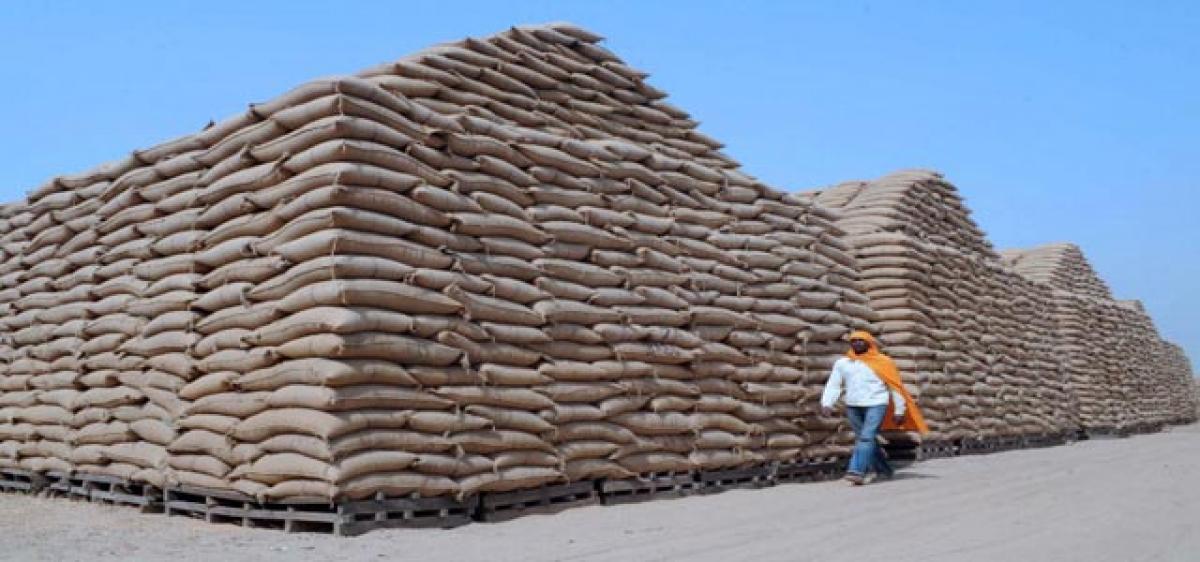
The NDA government promised in the budget last year to double the incomes of the farmers by 2020. There was no improvement in the incomes of the farmers, however.
The NDA government promised in the budget last year to double the incomes of the farmers by 2020. There was no improvement in the incomes of the farmers, however. Now, it has again promised to do the same by 2022 in the budget for 2017-18 presented earlier this month. This promise will meet the same fate as the previous one because the government refuses to even recognise, let alone solve the basic problem of the farmers. The intention of the government may be good but the policies are straightforward bad.
The NDA government has proposed to increase investment in irrigation and rural roads. This will certainly enable the farmer increase his production. The government has also initiated softer schemes to provide affordable crop insurance and cheap loans. This will lead to a lower cost of production. But these may not translate into an increase in incomes. Say a farmer was previously producing wheat at a cost of Rs 15 per kilo, selling it at Rs 17 per kilo, and making a profit of Rs 2 per kilo.
Now he will produce the same wheat at Rs 13 per kilo because of the facilities given by the NDA government. However, he may now incur a loss of Rss 1 per kilo if the price of wheat in the market declines from Rs 17 to Rs 12 per kilo. The profit of the farmer is dependent on the difference between the cost of production and the price of sale. It is not dependent of the cost of production alone. Thus reduction in the cost of production as so honestly being secured by the NDA government may not help the farmers.
Here we must know that there has been no reduction in the prices of agricultural produce in nominal terms of rupees per kilo. The minimum support prices continue to increase year after year. However, inflation has led to a reduction in the real price of the produce. Say, the minimum support price of wheat increased by 5 per cent per year while inflation increased by 7 per cent per year. Thus the real income of the farmer will decline by 2 per cent per year even though he supposedly gets a higher price.
The prices of agricultural produce in the country have been declining relative to the prices of other commodities for many decades and income of the farmer has been declining for this reason. The import-export policy of the NDA government adds salt to the injury. About 60 per cent of our population lives in the cities. They buy food from the market. About one-half of the remaining 40 per cent people living in the villages are farm labourers, artisans and shopkeepers. They too buy food from the market. Thus, about 80 per cent of our people buy food.
The top priority of the government is to control prices of food so that this huge constituency is kept in good humour. As a result the Government imports food when domestic prices are high as being done in the import of pulses nowadays. On the other hand, the government bans exports when domestic prices are low as was done three years ago in respect of wheat. The farmer is hurt both ways. He is prevented from benefiting from high domestic prices by making imports, and he is prevented from benefiting from high international prices by banning exports.
Let us say good sense prevails and the government allows the prices of agricultural produce to increase. That will certainly help the farmers. But this creates another problem. Say the government increases the Minimum Support Price of wheat. The farmers will then increase the production of wheat. The Food Corporation of India will have to buy this. The stocks with the Corporation will increase. This will lead to a problem of plenty as happened three years ago. Wheat started to rot in the godowns of the Corporation.
The Supreme Court then asked the government at that time why the wheat should not be distributed to the poor instead of letting it rot? That incident shows that an increase in price has to come along with a plan to dispose off the increased production. But it is not easy to do so. The domestic demand will decline as the price increases. The international economy too cannot help. Buyers will not buy wheat from India at Rs 17 a kilo if wheat from Australia is available at Rs 12 a kilo.
The government of India also cannot dispose of the excess production by giving export subsidies because these are prohibited under the World Trade Organisation. Thus, there is no easy solution. An increase in income of the farmer requires an increase in prices. That will lead to increase in production. But there is no easy disposal of this increased production. Therefore, the government cannot secure an increase in incomes even if it wanted to do so.
A solution to this problem is to provide a “land-based subsidy” to our farmers. These are not prohibited under the WTO. The United States gives subsidies to the farmers to keep their lands uncultivated. They survive on these subsidies even though their cost of production is high. The NDA government can similarly give a subsidy of, say, Rs 5,000 per acre to the small farmers and Rs 2,000 per acre to the large farmers. The fertilizer and food subsidies can be scrapped and the money used to provide these subsidies. This will enable the farmers to survive even if the price of their produce is less in the market.
The second solution is to facilitate the farmers to move towards high value agricultural goods. The farmers in France grow grapes that are used to make expensive wines, in Italy they produce olives, in Netherlands they produce Tulip flowers, in Brazil they produce coffee and in Sri Lanka they produce tea. The developed countries are able to pay a wage of Rs 7,000 per day to their farm labour because they produce niche products that fetch high prices in the international market.
India is blessed with an unprecedented diversity of climate from Kashmir to Andaman Islands. We can produce all these products, and more. The government must take up an ambitious research programme to produce these high value agriculture products. A public sector undertaking to export these products should also be established.
Direct land-based subsidy and high-value products are the only true solutions to the problems of our farmers. The present policy of investment in irrigation and roads and schemes for subsidised insurance and loans are good but they will only push the farmer deeper into distress in absence of these measures. Author was formerly Professor of Economics at IIM Bengaluru
By Dr Bharat Jhunjhunwala


